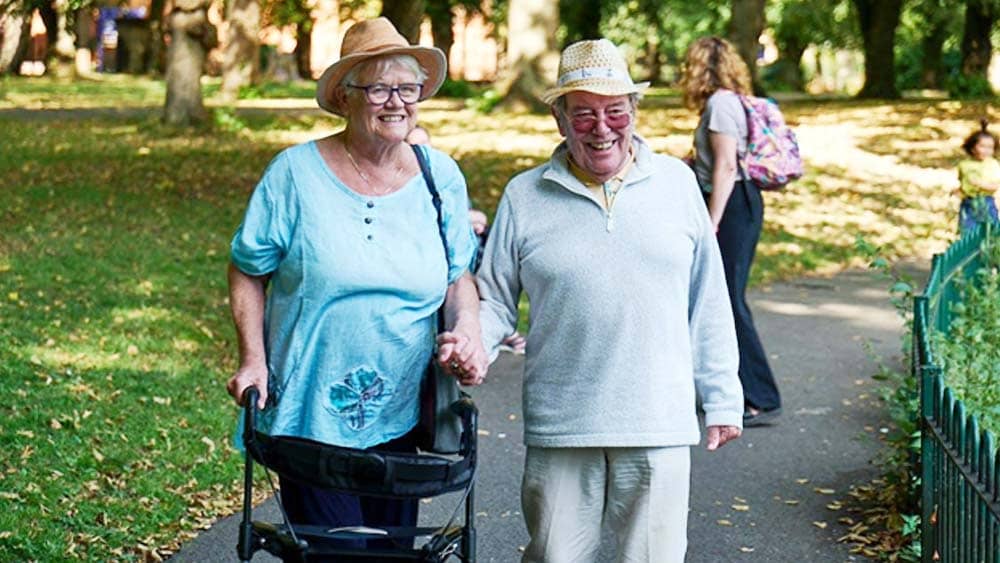Understanding Augmentative and Alternative Communication (AAC) Awareness Month
Communication is a fundamental human right, yet many individuals with disabilities face barriers in expressing themselves. Augmentative and Alternative Communication (AAC) offers a lifeline, providing tools and methods to bridge this gap. AAC Awareness Month shines a spotlight on these vital communication aids, promoting understanding and support.
For caregivers and support workers, navigating the complexities of AAC can feel overwhelming. However, with the right resources and training, they can empower individuals to achieve independence.
In Australia, the National Disability Insurance Scheme (NDIS) plays a crucial role. They ensure that individuals have access to the necessary support and assistive technology.
By raising awareness and fostering collaboration, AAC Awareness Month aims to create a more inclusive society. It encourages everyone to advocate for the rights and needs of those using AAC.

What is Augmentative and Alternative Communication (AAC)?
Augmentative and Alternative Communication (AAC) encompasses methods used to assist those who cannot rely on speech alone. It provides alternative ways for individuals to express thoughts, needs, and ideas. AAC is essential for those with communication challenges, allowing them to engage more fully in life.
AAC can be divided into two main categories: unaided and aided systems. Unaided systems do not require external tools, relying on body language, gestures, and sign language. These methods can be empowering as they are entirely accessible to the user at all times.
Aided systems use external tools to support communication. These can range from communication boards to electronic devices that generate speech. Such systems are crucial for many individuals, providing them a voice and the ability to communicate easier.
Incorporating both unaided and aided AAC systems can enrich communication possibilities. Below are examples of AAC methods:
- Gestures and sign language
- Picture exchange systems
- Speech-generating devices
Understanding these AAC forms can pave the way for effective support and improved quality of life for individuals with disabilities.
The Importance of AAC for Individuals with Disabilities
AAC holds immense significance for individuals with disabilities, as it bridges the gap in communication. For those who find traditional speech challenging, AAC offers alternative routes for interaction. These individuals can convey their needs, desires, and emotions more effectively.
Empowering individuals through AAC fosters independence and self-expression. It becomes a tool for social engagement, allowing users to participate in their communities. The sense of having a voice can significantly boost confidence and self-esteem.
AAC supports a more inclusive society by reducing barriers that communication challenges present. When individuals can express themselves, they contribute more meaningfully to family, work, and social settings. This inclusion is vital for emotional well-being and personal growth.
Key impacts of AAC on individuals with disabilities include:
- Enhanced social participation
- Increased sense of autonomy
- Improved quality of life
By understanding and advocating for AAC, we can create opportunities that honor each person’s right to communicate.

Types of AAC: Unaided and Aided Systems
Augmentative and Alternative Communication (AAC) consists of two primary categories: unaided and aided systems. Understanding these helps in tailoring support for individuals based on their specific needs.
Unaided AAC involves communication methods that don’t require external tools. This includes gestures, body language, and sign language. These methods depend solely on the user’s physical abilities to convey messages.
On the other hand, aided AAC involves tools or devices to facilitate communication. These can range from simple picture boards to advanced speech-generating devices. Each tool is designed to complement the user’s abilities, offering flexibility and accessibility.
Here’s a quick breakdown of AAC types:
- Unaided Systems: Gestures, Sign Language
- Aided Systems: Communication Boards, Speech-Generating Devices
Choosing the right type involves considering the individual’s preferences, strengths, and daily communication needs.

The Role of Speech Therapy and Support Work in AAC
Speech therapy plays a fundamental part in AAC by helping individuals develop communication skills. Therapists assess specific needs and tailor interventions to promote effective communication. They often collaborate with other professionals and caregivers for comprehensive care.
Support work enhances the success of AAC implementation by providing necessary assistance in diverse settings. Support workers assist individuals in using communication tools effectively. They also ensure these tools are integrated into daily routines, promoting independence.
Collaboration among speech therapists, support workers, and caregivers is crucial. This teamwork helps create personalised plans that cater to each individual’s needs. Here at Premium Home Care Service, we work closely alongside our client’s allied health practitioners to ensure consistent and high quality care.
These combined efforts ensure a holistic approach to improving communication for AAC users.
Assistive Technology and AAC: Expanding Communication Possibilities
Assistive technology transforms communication for people who would otherwise have difficulty expressing themselves. It provides diverse tools, from simple devices to advanced electronic systems, greatly enhancing expression capabilities.
Innovations in this field continue to expand these options. Technology adapts to individual needs, ensuring accessibility and improving the effectiveness of AAC systems. Such advancements allow individuals with disabilities to communicate with more ease and confidence.
Key tools include:
- Speech-generating devices: Enable verbal communication
- Communication apps: Provide digital platforms for expression
- Adaptive hardware: Customize interaction with devices
These technologies play a vital role in the everyday lives of AAC users. They promote independence and empower individuals to connect with others in meaningful ways.
AAC in Australia: Services, Support, and the NDIS
Australia provides comprehensive services to support AAC users. Organisations like Premium Home Care Service (PHCS) offer specialized help, ensuring individuals get the best care and assistance.
The NDIS supports eligible participants. It covers essential AAC tools and services, making communication aids more accessible to those in need.
Available resources include:
- Specialized training: For caregivers and support workers
- Personalized care plans: Tailored to individual needs
- Collaborative support networks: Uniting therapists and families
This support framework empowers individuals with disabilities, allowing them to achieve their personal goals through effective communication.

How Caregivers and Support Workers Can Empower AAC Users
Caregivers and support workers play a pivotal role in empowering AAC users. They can create a supportive environment by understanding the unique needs of each individual.
Encouragement and patience are key. Supporting AAC users involves building confidence and promoting self-expression. It’s important to celebrate small successes and foster independence.
Effective strategies include:
- Ongoing training: To stay informed about the latest AAC tools
- Collaborative planning: Working with therapists to set achievable goals
- Personalised communication strategies: Tailored to each individual’s preferences
These efforts can significantly enhance the quality of life for AAC users, promoting a sense of belonging and empowerment.
Getting Involved in AAC Awareness Month
Participating in AAC Awareness Month offers a chance to foster inclusion and understanding. By getting involved, you can help reduce stigma and educate others about communication disabilities.
Consider these actions:
- Attend workshops: Gain insights from professionals and users.
- Participate in local events: engage in your community.
- Share stories: Advocate through personal experiences on social media.
Your involvement can make a difference, promoting a more inclusive society for AAC users.
Conclusion: Building an Inclusive Future Through AAC
Augmentative and Alternative Communication (AAC) offers a voice to individuals with communication challenges. By embracing AAC, we create paths to independence.
Together, through awareness and support, we can cultivate an inclusive future, where everyone has the opportunity to communicate and connect meaningfully.
If you or your loved one are based in Adelaide or Melbourne, need high quality, persoanlised support work, and uses any kind of AAC, reach out to PHCS and find out how we can help!

























